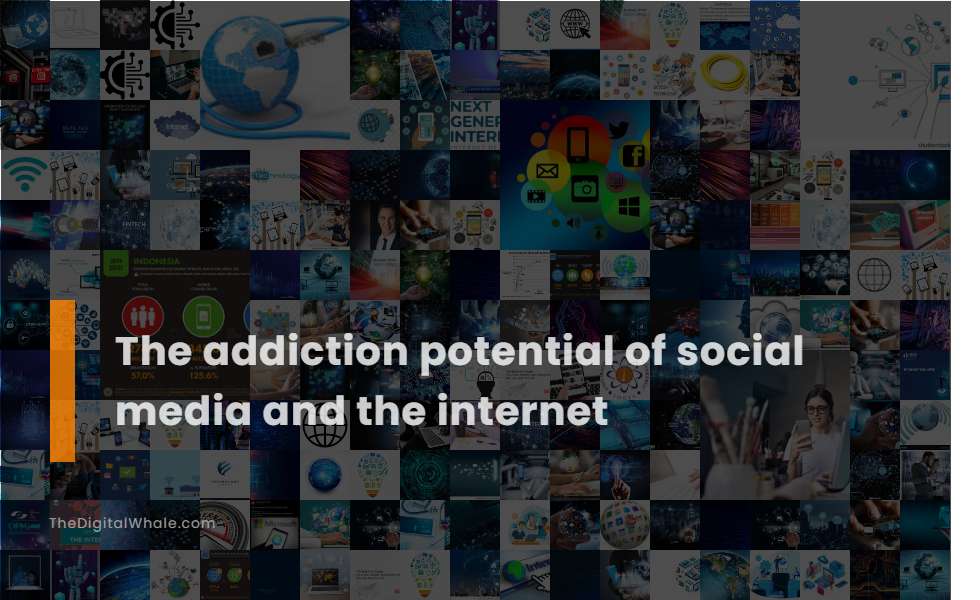The Addiction Potential of Social Media and the Internet
What is social media addiction and what can you do about it? What are some signs of social media addiction? Let's find out more about The Addiction Potential of Social Media and the Internet.

210 million people worldwide are estimated to be addicted to social media.
Approximately 210 million people worldwide are estimated to suffer from addiction to social media and the internet, highlighting a significant global concern that affects a substantial portion of the population, particularly among younger demographics and with varying prevalence rates across different regions. For further insights, you can explore more about this issue through the informative content provided by Social Media Addiction Statistics on Samba Recovery's website, which delves deeper into the implications and statistics surrounding this modern-day challenge.
10-33 million Americans are believed to be addicted to social media.
Approximately 10%, or around 33.19 million Americans, are estimated to be addicted to social media, according to reports from California State University, highlighting the significant prevalence of Social Media Addiction in the United States.
The average person spends two hours and 27 minutes on social media every day.
The average person spends approximately 2 hours and 27 minutes on social media every day, highlighting the extensive and pervasive nature of Social Media Usage in modern life.
More than half of all drivers admit to checking social media behind the wheel.
More than half of all drivers admit to checking social media while driving, highlighting a significant and dangerous aspect of Social Media Addiction that extends beyond typical usage scenarios and into risky behaviors.
Excessive social media use can rewire the brains of children and teens.
Excessive social media use can rewire the brains of children and teens by affecting areas related to social rewards and punishments, such as the amygdala and the dorsolateral prefrontal cortex. This can lead to increased sensitivity to social feedback and potential long-term impacts on mental health, including depression and social anxiety, as detailed in the article on Social Media Is Rewiring Children Brains. Understanding these effects is crucial for parents and educators to mitigate the risks associated with prolonged exposure to digital platforms.
Related:
What are some of the pros and cons of online dating? What are the pros and cons of using dating websites and apps? Let's find out more about The Ups and Downs of Online Dating.
42 percent of teens admit that social media keeps them from connecting with friends in person.
While the specific statistic that "42 percent of teens admit that social media keeps them from connecting with friends in person" is not mentioned in the provided sources, the data indicates that teens spend significant amounts of time on social media, which can negatively impact their in-person social interactions. For example, 36% of teens acknowledge spending excessive time on social media, and 54% find it challenging to give up social media, suggesting a potential impact on their ability to connect with friends in person. For more insights into these dynamics, you can visit the Grove Treatment Center's Social Media Statistics page to learn more about how these platforms might be influencing teenagers' social skills and interactions.
Social media addiction is linked to anxiety, depression, insomnia, stress, and decreased subjective happiness.
Social media addiction is strongly correlated with the development of anxiety, depression, insomnia, stress, and decreased subjective happiness, with the likelihood of these mental health problems increasing with the amount of time spent on social media platforms and the frequency of usage. For a detailed understanding of this correlation, you can refer to the analysis available on PubMed. The comprehensive research highlights the profound impact of excessive social media engagement on mental well-being.
30% of Americans consider themselves addicted to social media.
About 30% of Americans consider themselves addicted to social media, which has significant implications for mental health, including increased risks of depression, anxiety, and eating disorders. This addiction has a notable impact on various demographics, particularly younger adults and women. For more detailed insights and statistics, you can refer to the comprehensive analysis provided by Exploding Topics.
Social media use is strongly correlated with social isolation, decreased physical activity, and poor academic or work performance.
Social media use is strongly correlated with social isolation, decreased physical activity, and poor academic or work performance, as it leads to increased feelings of loneliness, neglect of real-life relationships and responsibilities, and a cyclical pattern of using social media to relieve undesirable moods. This pattern exacerbates mental health issues and hampers productivity. For more detailed insights on this topic, visit the Addiction Center.
Younger generations, especially teens, are at a higher risk of mental health issues such as depression, anxiety, and suicidal thoughts due to social media addiction.
In recent years, the younger generations, particularly teens, have faced an elevated risk of mental health issues, including depression, anxiety, and suicidal thoughts, heavily influenced by their use of social media. This trend of growing social media addiction is alarming as it can lead to tech dependence, sleep deficits, increased stress, and diminished self-esteem. Furthermore, teens often struggle with poor body image and are frequently exposed to hate-filled content and cyberbullying, exacerbating these issues. Research has shown that excessive social media use is linked to a greater likelihood of depression and suicidal behaviors, with young adults engaging in such platforms being three times more susceptible to depression. Over the past two decades, there has been a noticeable surge in teen suicide rates, underscoring the urgent need for addressing the mental health challenges posed by digital engagement.
Related:
does social media have negative effects on mental health? What types of social media affect our mental health? Let's find out more about How Does Social Media Affect Mental Health?.
